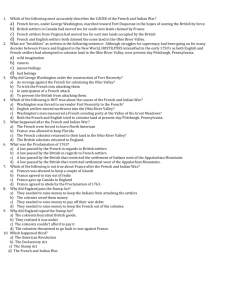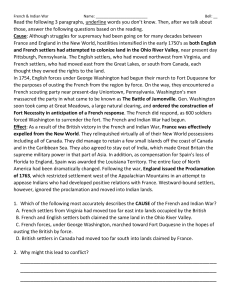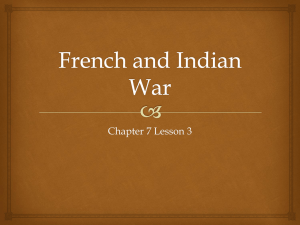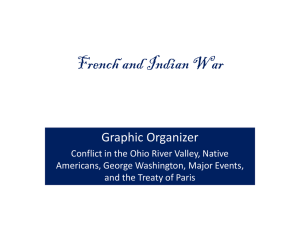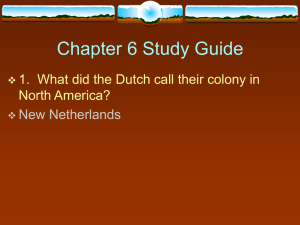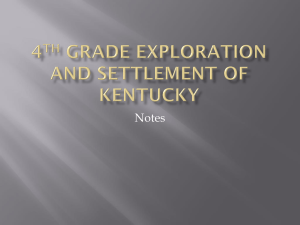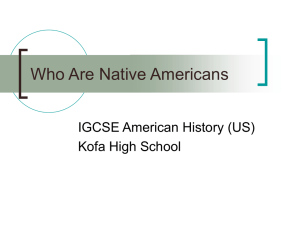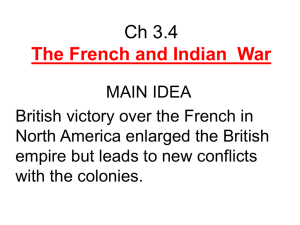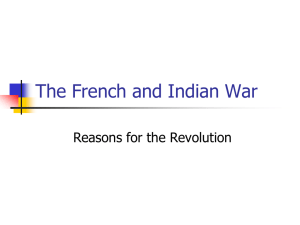french and ind war active reading
advertisement
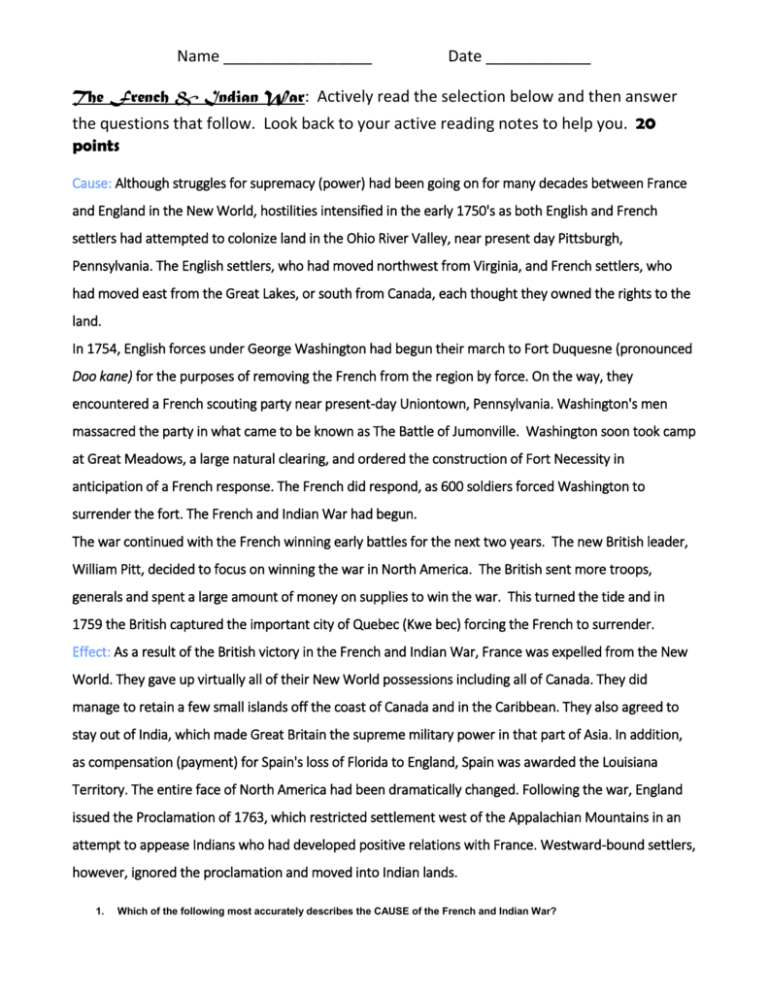
Name _________________ Date ____________ The French & Indian War: Actively read the selection below and then answer the questions that follow. Look back to your active reading notes to help you. 20 points Cause: Although struggles for supremacy (power) had been going on for many decades between France and England in the New World, hostilities intensified in the early 1750's as both English and French settlers had attempted to colonize land in the Ohio River Valley, near present day Pittsburgh, Pennsylvania. The English settlers, who had moved northwest from Virginia, and French settlers, who had moved east from the Great Lakes, or south from Canada, each thought they owned the rights to the land. In 1754, English forces under George Washington had begun their march to Fort Duquesne (pronounced Doo kane) for the purposes of removing the French from the region by force. On the way, they encountered a French scouting party near present-day Uniontown, Pennsylvania. Washington's men massacred the party in what came to be known as The Battle of Jumonville. Washington soon took camp at Great Meadows, a large natural clearing, and ordered the construction of Fort Necessity in anticipation of a French response. The French did respond, as 600 soldiers forced Washington to surrender the fort. The French and Indian War had begun. The war continued with the French winning early battles for the next two years. The new British leader, William Pitt, decided to focus on winning the war in North America. The British sent more troops, generals and spent a large amount of money on supplies to win the war. This turned the tide and in 1759 the British captured the important city of Quebec (Kwe bec) forcing the French to surrender. Effect: As a result of the British victory in the French and Indian War, France was expelled from the New World. They gave up virtually all of their New World possessions including all of Canada. They did manage to retain a few small islands off the coast of Canada and in the Caribbean. They also agreed to stay out of India, which made Great Britain the supreme military power in that part of Asia. In addition, as compensation (payment) for Spain's loss of Florida to England, Spain was awarded the Louisiana Territory. The entire face of North America had been dramatically changed. Following the war, England issued the Proclamation of 1763, which restricted settlement west of the Appalachian Mountains in an attempt to appease Indians who had developed positive relations with France. Westward-bound settlers, however, ignored the proclamation and moved into Indian lands. 1. Which of the following most accurately describes the CAUSE of the French and Indian War? A. French settlers from Virginia had moved too far east into lands occupied by the British B. French and English settlers both claimed the same land in the Ohio River Valley. C. British settlers in Canada had moved too far south into lands claimed by France. D. 2. French forces, under George Washington, marched toward Fort Duquesne in the hopes of ousting the British by force. What are "hostilities" as written in the following sentence: Although struggles for supremacy had been going on for many decades between France and England in the New World, HOSTILITIES intensified in the early 1750's as both English and French settlers had attempted to colonize land in the Ohio River Valley, near present day Pittsburgh, Pennsylvania. 3. 4. 5. A. wild imagination B. bad feelings C. joyous feelings D. rumors Why did George Washington order the construction of Fort Necessity? A. In anticipation of a French attack. B. To prevent the British from attacking them. C. As revenge against the French for colonizing the Ohio Valley D. To trick the French into attacking them. Which of the following is NOT true about the causes of the French and Indian War? A. Both the French and English tried to colonize land at present-day Pittsburgh, Pennsylvania B. English settlers moved northwest into the Ohio River Valley. C. Washington was forced to surrender Fort Necessity to the French D. Washington's men massacred a French scouting party at the Battle of Great Meadows. What happened after the French and Indian War? A. The British colonists returned to England. B. France was allowed to keep Florida. C. The French colonists returned to their land in the Ohio River Valley D. The French were forced to leave North America. 6. 7. 8. What was the Proclamation of 1763? A. A law passed by the British in regards to French settlers. B. A law passed by the British that restricted settlement west of the Appalachian Mountains C. A law passed by the French in regards to British settlers. D. A law passed by the British that restricted the settlement of Indians west of the Appalachian Mountains. Which of the following is not true about France after the French and Indian War? A. France gave up Canada to England. B. France was allowed to keep a couple of islands. C. France agreed to abide by the Proclamation of 1763 D. France agreed to stay out of India. In a few sentences answer the following question. What led to the British finally winning the French & Indian War in North America? Support your answer with details from the reading. Notes from class discussion/review
